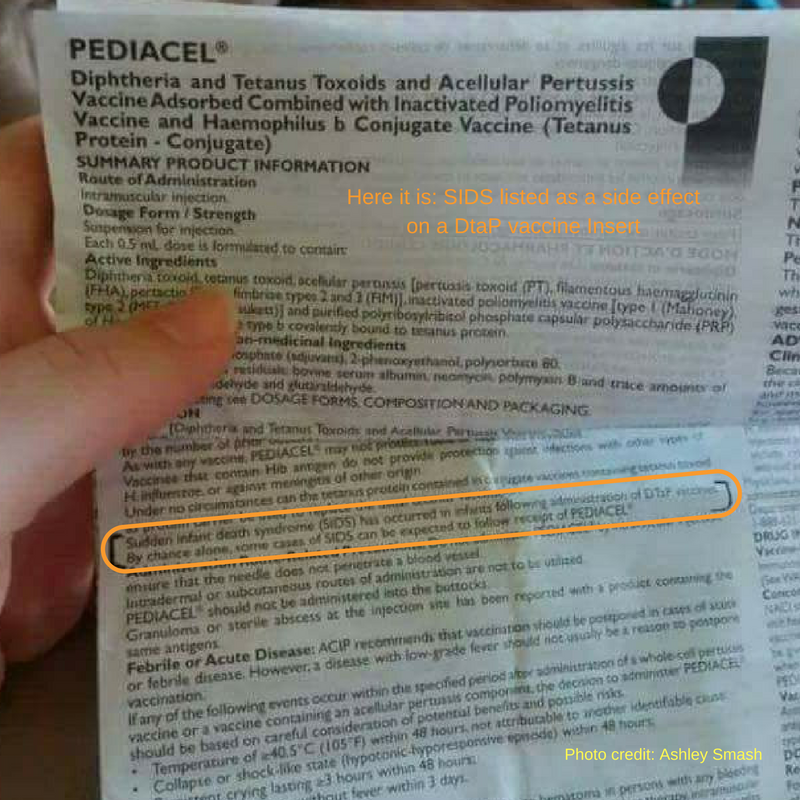
SIDS is the term given to all of the babies who die of an unexplainable death before they turn one year old.
SIDS and the DTaP Vaccine
“70%
of children who have died of SIDS received the pertussis vaccine within
3 weeks before death.” Within this 3 week time period after receiving
the vaccine, children’s breathing patterns became stress-induced,
wreaking havoc on their respiratory systems (Pages 120 and 121 of
Vaccine Safety Manual For Concerned Families and Health Practitioners).
This stressed induced breathing, combined with a baby sleeping face down
would seem to make it even more troublesome for him/her to breathe
freely. This is the very same vaccine that lists SIDS as a possible side
effect. Something to think about (at the very least).
Please
note, the CDC is changing their inserts over the last year, leaving out
important side effects even though they are very much still side
effects.
Any infant death that is ‘unexplainable’ gets lumped
into the term SIDS. I believe much of it has to do with a toxic
overload. Here’s some more information on that: Protecting Your Baby From SIDS
Statement from the World Health Organization on Vaccines
Just Two Days Ago (January 18, 2020), after meeting to discuss vaccines at the Global Vaccine Safety Summit, the World Health Organization came out with a statement acknowledging that they are questioning the safety of vaccines. The live feed is pretty eye-opening.
The Childhood Vaccination Program
As
far as the childhood vaccination program, Robert F. Kennedy has been
studying the ingredients and the program itself, for years. “These guys
at the CDC originally were telling me ‘well, there’s a good mercury and a
bad mercury,’” Kennedy said. “I knew at that point, their argument was
not with me, it was with the periodic table, because there’s no way that
could happen.”
Kennedy said according to well-known vaccine
proponent and rotavirus vaccine developer Paul Offit, who he spoke with
by phone, ethyl mercury leaves the body so fast that it doesn’t have
time to do damage. However, Kennedy said that he had read Thomas
Burbacher’s monkey studies which confirmed that although ethyl mercury
does clear the blood quickly, it goes directly into the brain, where it
rapidly metabolizes into highly toxic inorganic mercury, and then lodges
there, creating inflammation and brain damage.
No comments:
Post a Comment